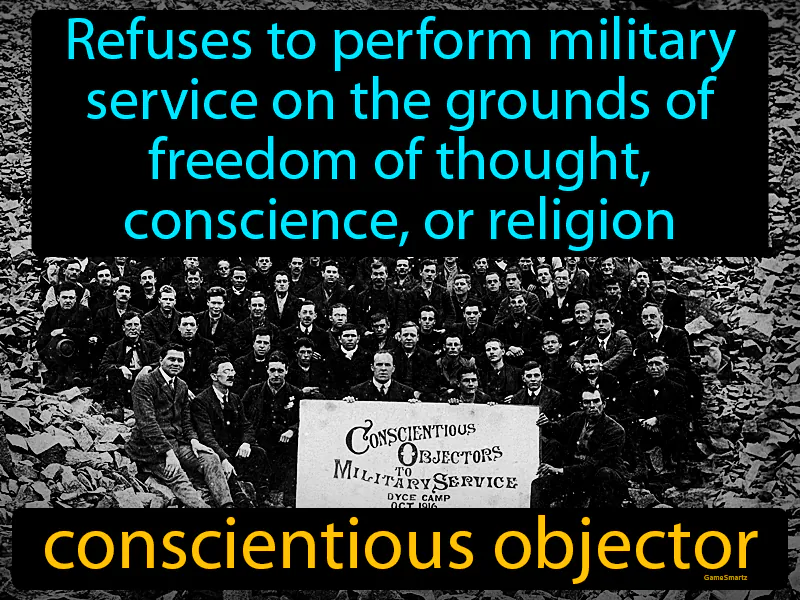Conscientious Objector
Conscientious Objector:
During World War 1, the term "conscientious objector" referred to people who refused to join the military due to personal beliefs, often based on religion or morals. This was important because it highlighted the conflict between individual rights and national duties during wartime. Conscientious objectors faced criticism, imprisonment, and even execution, as some societies viewed them as unpatriotic. Today, the concept still matters as it underscores the importance of respecting diverse beliefs and the right to make personal decisions about participating in war. For example, someone might choose a career in humanitarian work instead of military service to contribute to peace, showing how personal convictions can shape life choices.

Practice Version

Conscientious Objector: Refuses to perform military service on the grounds of freedom of thought, conscience, or religion. Conscientious objector. A conscientious objector is someone who refuses to fight in wars due to their personal beliefs or principles.
